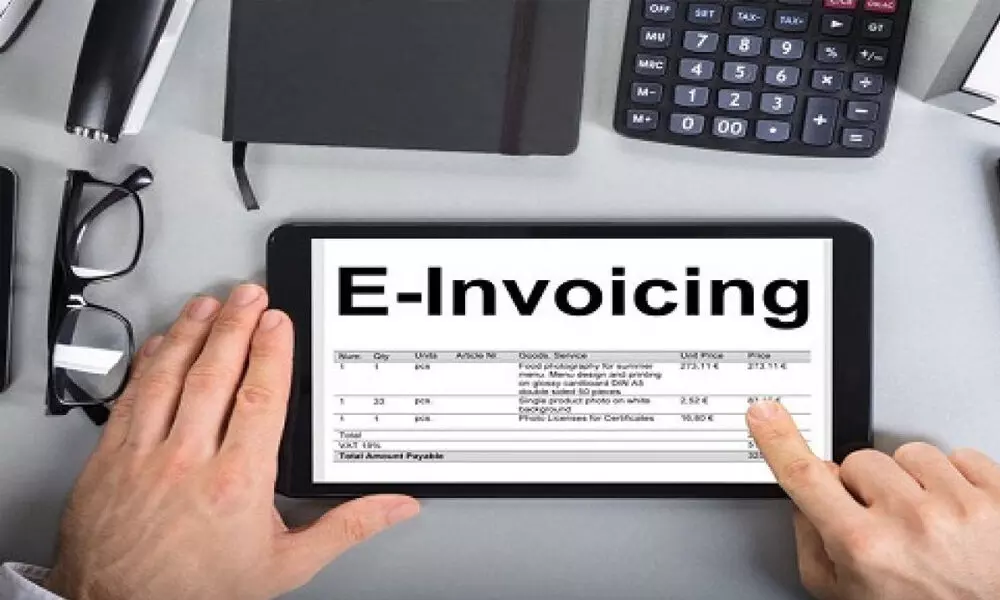e-invoicing mandatory for Rs 50cr biz units
Third phase implementation to curb manipulation
image for illustrative purpose

Mumbai THE government has made e-invoicing mandatory for businesses with annual revenue of over Rs 50 crore from April 1. The new process is expected to prevent manipulation of invoices.
This was the third phase of e-invoicing roll out. In the 1st phase, introduced on October 1 last year, entities with an annual turnover of Rs 500 crore and above were supposed to file e-invoicing for their tax returns. Later, the mandate was extended to entities with annual revenue of Rs 100 crore and above from January 1. E-invoicing filing is applicable for all the sectors and companies with a total turnover of 50 crore but few sectors have been exempted from the mandate like Insurance Companies, Banking Companies, Financial Institutions, NBFCs, GTA, Special Economic Zones (SEZs), supplier of passenger transportation services and for supplier of services by way of admission to the exhibition of cinematograph films in multiplex screens.
The new process is expected to prevent manipulation of invoices as the invoices will now be generated before carrying out a transaction. This will further reduce the scope of fake GST invoices, and similarly, only genuine ITC can be claimed. The stipulations will prevent companies from committing data/transaction theft and they have to showcase their business transactions to the government. There has also been a considerable growth witnessed in tax filings as now a large percentage of businesses are falling over the 50 crore line. The surplus tax will surely help in giving a boost to the economy.
On one hand, where the E-invoicing mandate is bringing parity to the economic system, on the other, it might create a few problems for micro and small businesses.
Sharing his views on the same, Rajesh Gupta, Co-founder and Director, Busy Infotech says, "Some preparedness will be required before the e-invoicing mandate is circulated, especially to the micro and small size businesses as they don't invest much in technology and lack digital knowledge. The E-invoicing process can be an extra burden for them as in villages broadband and connectivity is a major problem. The businesses will also have to now sustain CAPEX and OPEX costs for activities like integrating their account systems with the IRP model, they will also have to modify their account systems to stick to the e-invoicing and will have to undergo detailed training for their staff to get familiar with the e-invoicing norms and accounting infrastructure."
A change on such a large scale can be difficult to handle for many firms and hence the regulation, instead of being necessary should be applied in phases and proper education infrastructure should be provided to businesses for streamlining the process, he added.
A majority of businesses in the rural areas still follow old traditional textbook entry for their transactions. A sudden digital transformation for them could be a big hurdle and it will affect the business productivity in a big way.

